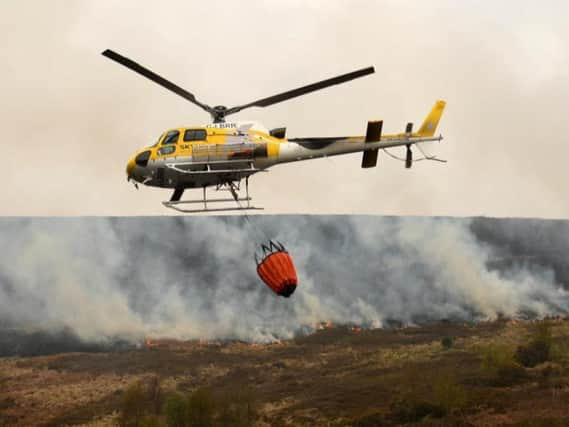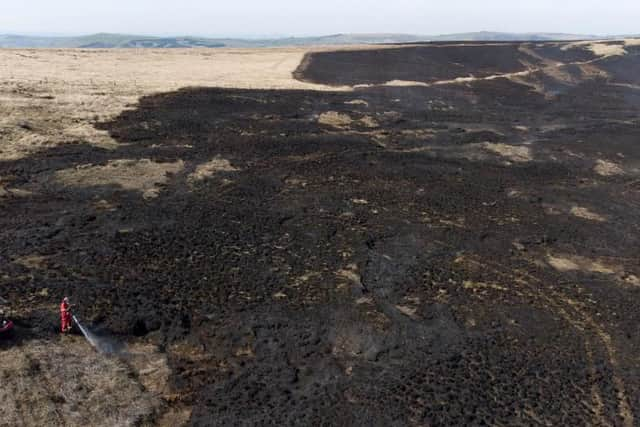'Controlled burning' needed at Marsden Moor to reduce risk of wildfires, groups claims


Tim Bonner, chief executive of Countryside Alliance, said the devastating fire in April was “the result of” dry weather, irresponsible behaviour and “the decision of the National Trust to stop managed burning on the moor”.
In a statement, he said managed fires have been used for centuries to “reduce the fuel load on moors” this makes wildfires “less likely and more manageable when they do occur”.
Advertisement
Hide AdAdvertisement
Hide AdMore than 100 firefighters were called to Marsden Moor to tackle the latest fire, which burnt for three days after it broke out on the evening of April 25, and a helicopter was brought in to drop water from a nearby reservoir on the worst affected areas.


The National Trust says it “has been devastated by a series of ferocious moorland fires” in recent years and the latest blaze caused hundreds of thousands of pounds worth of damage and destroyed two square miles of precious moorland habitat.
The trust uses machines to cut away some vegetation on the moor near Huddersfield and create fire breaks, but Mr Bonner does not believe this method is effective.
He added: “Being able to use controlled burning, which removes fuel load without impact on peat, where it is appropriate and effective would give managers at Marsden Moor the flexibility to address the threat of wildfire flexibly and proactively alongside cutting, rewetting and other management approaches.
Advertisement
Hide AdAdvertisement
Hide Ad“It is hard to resist the conclusion that the trust’s complete ban on burning is a political - rather than a practical position - which ties the hands of those who look after the moor.”
A National Trust spokeswoman said: “We don’t burn on Marsden Moor as our conservation efforts are focused on rewetting these peatlands to restore the blanket bog and help create carbon sinks to tackle the effects of climate change.
“This process also supports the rich array of wildlife that inhabit the moors, including curlew and mountain hares.
“When peatlands dry out, become exposed through inappropriate management or are burned, they shift from capturing carbon to becoming a source of carbon and other greenhouse gases.
Advertisement
Hide AdAdvertisement
Hide Ad“While we are yet to discover the cause of this latest fire, most UK wildfires are caused by people and we work with local councils, government agencies, other land managers and the emergency services to raise the public’s awareness at Marsden and elsewhere to change behaviours to help reduce the risk.”
West Yorkshire Police say officers have spoken to a man and woman about the recent fire on Marsden Moor and have “submitted a file to the CPS for a decision as to whether charges should be brought”.
They were investigating to see if a Public Space Protection Order (PSPO) at the site, which bans bonfires, fireworks and barbecues, had been breached.